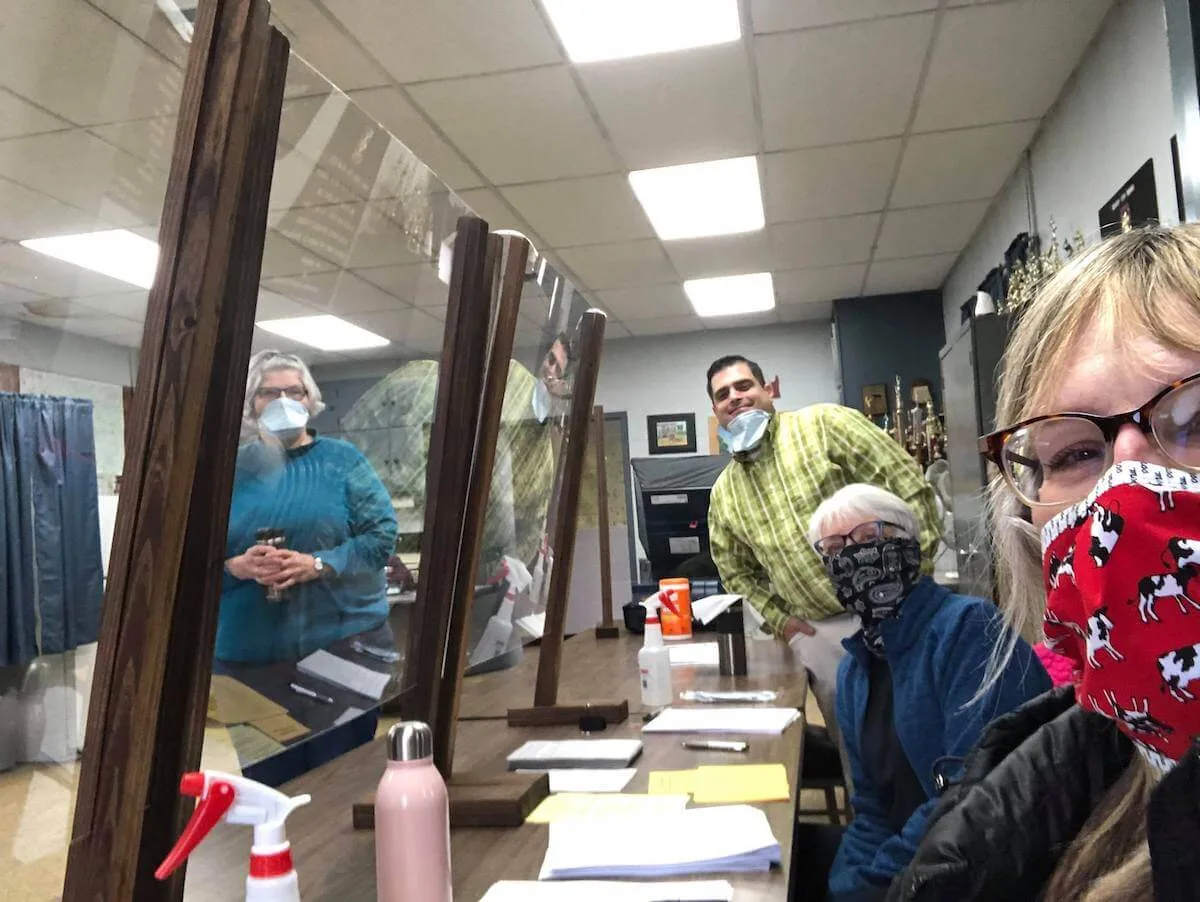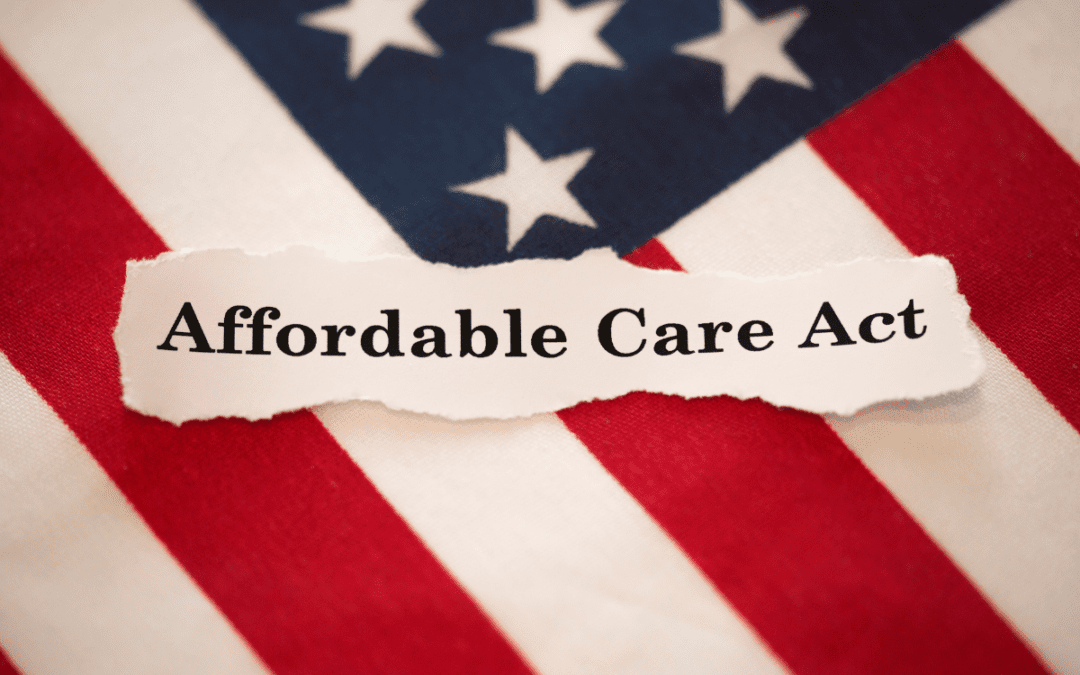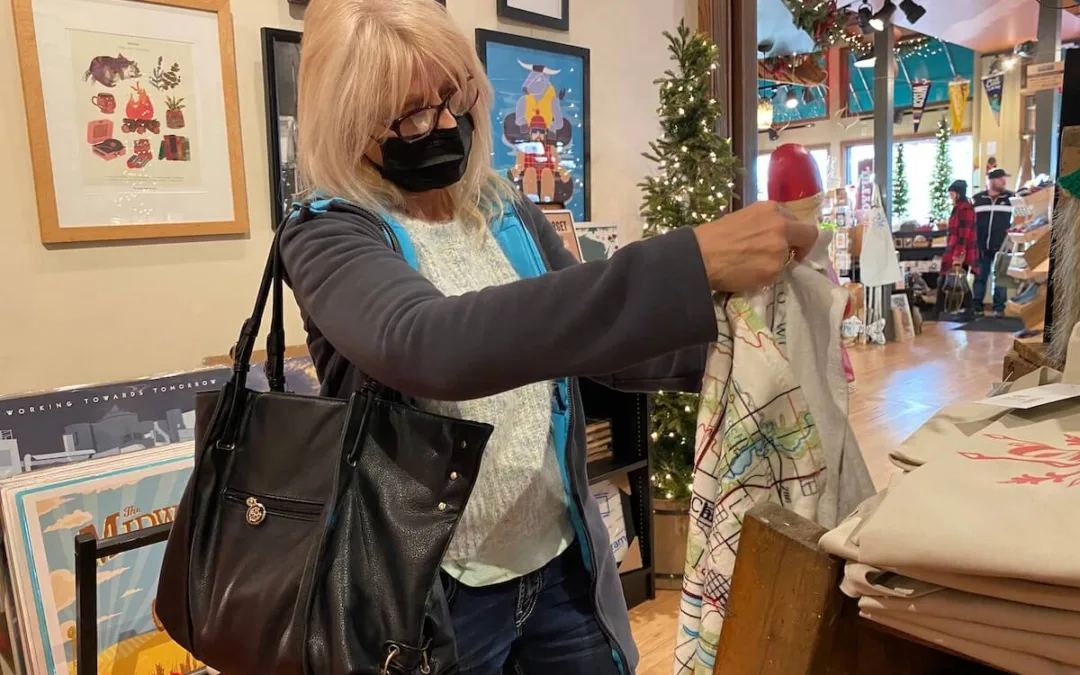
#image_title
#image_title
State’s elections commission has gridlocked on 3-3 party-line votes over past attempts at reform
Halfway through the year, Angela Lang is already sick of hearing about the latest political head-scratcher. And the presidential election isn’t even in full swing yet.
“I’m really tired of turning on the national news and hearing about Wisconsin,” said Lang, executive director of Black Leaders Organizing for Communities, or BLOC, one of the two organizations that filed a federal lawsuit calling for sweeping changes to the August and November elections.
BLOC and Disability Rights Wisconsin, in conjunction with three voters, have filed the lawsuit to make key changes to the August primary and November general election after Wisconsin was embarrassingly thrust into the global spotlight when Republicans forced an in-person April 7 election in the middle of the coronavirus pandemic.
The suit seeks various improvements such as sending absentee ballot applications to all voters, expanding access to early in-person voting, guaranteeing enough poll workers, and launching a public information campaign on early voting.
The plaintiffs allege the Wisconsin Elections Commission violated the Voting Rights Act, Americans with Disabilities Act, and the First and 14th Amendments by not enacting adequate changes to the April 7 election. It argues Wisconsinites were disenfranchised through widespread poll closures, technical glitches, and a risk of COVID-19 exposure, among other numerous issues associated with the election.
“We had an election in a global pandemic, and we were kind of the guinea pigs,” Lang said. “We were the test subjects for that, and we can be an example for the rest of the country.”
While every change the lawsuit asks for could be made by the Legislature, the odds of Republican Assembly Speaker Robin Vos and Senate Majority Leader Scott Fitzgerald actually doing anything appear to be incredibly low. Both have said they will not take a statewide approach to fight coronavirus, and Vos has consistently deflected blame onto Gov. Tony Evers and Milwaukee officials for how the election played out there.
“If they want to come back and (invalidate) our lawsuit because they do it all through a law, I’d be perfectly happy with that,” said Kit Kerschensteiner, legal and advocacy services director for Disability Rights Wisconsin.
Individual polling places were closed in several communities due to a worker shortage. The impact was particularly profound in Milwaukee, where only five polling places were open as opposed to the regular 182. Other cities, including Waukesha, Kenosha, and Green Bay, had a greatly reduced number of open polling places. The result was lines that took up to three hours to get through.
The state Department of Health Services has officially linked 52 coronavirus cases to people who voted or worked as poll workers, but the department never explicitly tied the cases to the in-person election.
However, a study published this month by researchers at the University of Wisconsin-Oshkosh, UW-Madison, and Ball State University, concluded that the election had a significant impact on the virus’ spread. Excluding Milwaukee County and Brown County — the two most-infected counties — confirmed coronavirus cases in other counties increased after the election by about 3.5 percent for every 100 votes cast in-person, the study found.
“Our results show large increases in the rate of positive COVID-19 tests two and three weeks following the election,” the study authors wrote.
Lang argued that any number of new cases was unacceptable.
“If only one person got sick from exercising their right to vote, that’s one person too many,” Lang said. “That is not something that should happen in a responsible and robust democracy.”
Clerks and elections officials across the state are already preparing for the worst. Clerks said they now have a clearer picture of how to run a smooth pandemic election, and the Wisconsin Elections Commission is considering other changes at a meeting Wednesday night.
Politics

6 terrifying things that could happen if the Comstock Act is used to target abortion
Does 1873 sound like a really, really long time ago? Well, that’s because it is—but if Republicans and far-right anti-abortion activists have their...

Opinion: Many reasons why young adults should refuse to let Republicans kill the Affordable Care Act
In this op-ed, University of Wisconsin Medical School student, Samantha Crowley, shares the importance of young adults protecting the Affordable...
Local News

Stop and smell these native Wisconsin flowers this Earth Day
Spring has sprung — and here in Wisconsin, the signs are everywhere! From warmer weather and longer days to birds returning to your backyard trees....

Your guide to the 2024 Blue Ox Music Festival in Eau Claire
Eau Claire and art go hand in hand. The city is home to a multitude of sculptures, murals, and music events — including several annual showcases,...


